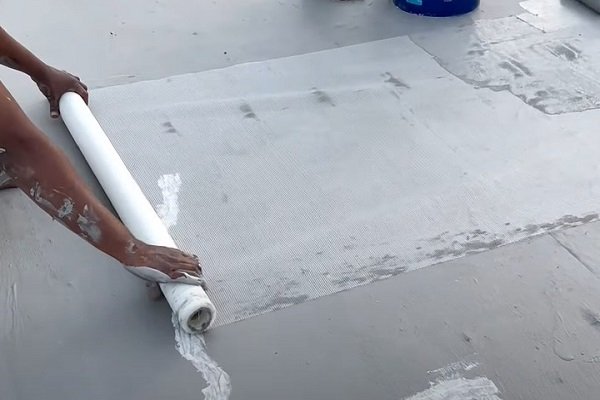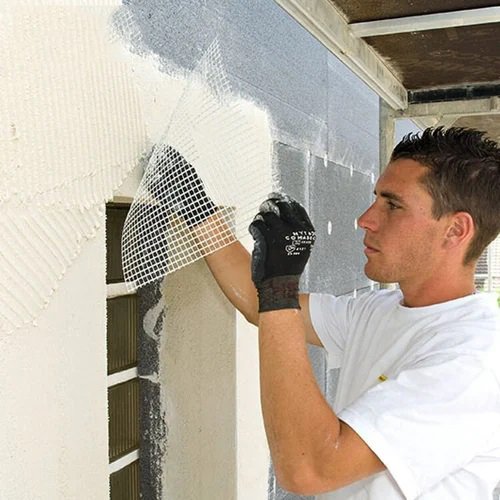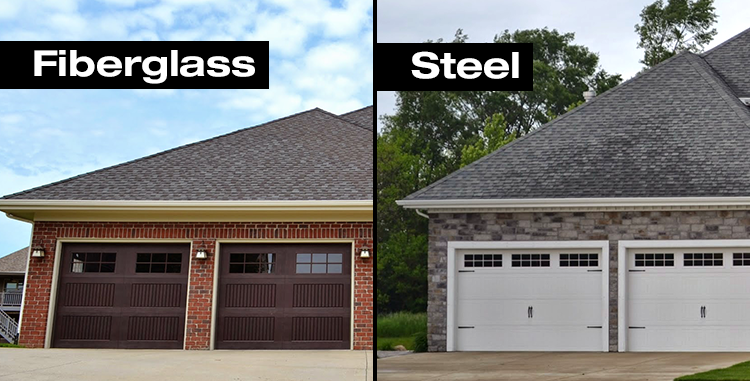
Table of Contents
Introduce
The construction industry has undergone a seismic shift in recent decades. Traditional materials like steel and concrete, while still relevant, are increasingly being complemented—or even replaced—by advanced composites like fiberglass. In this comprehensive guide, we’ll explore the science, applications, and advantages of fiber glass mesh, addressing critical questions that define its role in modern construction. Whether you’re a seasoned professional or a curious newcomer, this article will equip you with the knowledge to make informed decisions—and perhaps even redefine how you approach building projects.
What is Fiberglass Used for in Buildings?
Fiber glass mesh is a versatile material employed across multiple construction phases:
Reinforcement: Embedded in plaster or stucco, fiber glass mesh for plaster prevents cracking and enhances structural integrity.
Insulation: As a non-conductive material, it’s ideal for thermal and electrical insulation.
Waterproofing: Used in roofing meshes to create moisture-resistant barriers.
Decorative Finishes: Textured walls and facades often rely on fiber glass mesh fabric for smooth application.
At Niumaterial, our meshes are engineered to meet these diverse needs, ensuring compatibility with both residential and industrial projects.


Why is Fiberglass Used in Construction?
The shift toward fiberglass stems from its unique properties:
Lightweight: Easier to transport and install than steel.
– Corrosion-Resistant: Unlike steel, it doesn’t rust, making it perfect for humid or coastal environments.
– Flexibility: Can conform to curved surfaces, a feat impossible for rigid materials.
– Cost-Effective: Lower long-term maintenance costs outweigh initial investments.

Why is Fiberglass Better Than Steel?
While steel has long been the default choice for structural reinforcement, fiber mesh is rapidly redefining industry standards by addressing steel’s inherent limitations. Let’s break down the key advantages:
Unmatched Durability
Unlike steel, which corrodes over time—especially in humid, coastal, or chemically exposed environments—fiber glass mesh is inherently rust-proof and resistant to chemical degradation. This translates to a lifespan 2-3 times longer than steel in harsh conditions, reducing maintenance costs and replacement frequency.
Superior Thermal Efficiency
Steel conducts heat and cold, creating thermal bridges that compromise building insulation. Fiber glass mesh fabric, on the other hand, is non-conductive. By integrating it into walls or roofing systems, builders can minimize energy loss by up to 30%, lowering HVAC costs and enhancing sustainability.
Ease of Installation
Steel requires welding, cutting tools, and heavy machinery, adding labor time and complexity. Fiber mesh is lightweight (up to 75% lighter than steel) and flexible, allowing it to conform to curves or tight spaces effortlessly. Installation often takes half the time, with no specialized skills required.
Cost-Effectiveness
While steel prices fluctuate with market demand, fiber glass mesh offers stable pricing. Combined with lower transportation and labor costs, projects using our meshes see 15-20% overall savings compared to traditional steel reinforcement.

What Are the Advantages of Niumaterial Fiberglass Mesh?
As a globally trusted fiber glass mesh manufacturer, Niumaterial doesn’t just meet expectations—we redefine them. Here’s how we deliver unmatched value to manufacturers, traders, and engineering firms:
Certified Quality Assurance
Every roll of fiber glass mesh fabric undergoes 12+ rigorous tests, including tensile strength, alkali resistance, and UV stability checks. Our ISO 9001-certified fiber glass mesh factory ensures 99.8% defect-free products, backed by a 5-year performance guarantee.
Bespoke Customization

Need a 160g/m² fiber glass mesh for plaster with fire-retardant coatings? Or a 300g/m² roofing mesh for extreme climates? Our R&D team collaborates directly with clients to develop tailored solutions, with prototype turnaround times as short as 72 hours.
Global Logistics, Local Reliability
With strategically located hubs in Shijiazhuang (China) and Thailand, we guarantee delivery within 7-15 days to 90% of global markets. Real-time tracking and flexible MOQs (starting at 500 rolls) minimize inventory headaches for traders.


How to Choose the Right Fiberglass Mesh?
Selecting the optimal fiber glass mesh requires balancing technical specs with supplier reliability. Follow this actionable framework:
Match the Mesh to the Application
Walls/Plaster: Opt for 145-165g/m² fiber glass mesh for plaster with high alkali resistance (e.g., Niumaterial’s NM-160 series).
Roofing/Flooring: Choose heavier 250-300g/m² meshes for load-bearing capacity.
Industrial Use: Prioritize epoxy-coated fiber glass mesh fabric for chemical resistance.
Decode Weight & Density
Lightweight (80-120g/m²): Ideal for DIY repairs or temporary structures.
Medium (145-200g/m²): Standard for residential plaster and stucco.
Heavy-Duty (250g/m²+): Designed for bridges, highways, and seismic zones.
Vet Your Supplier’s Credentials
Proven Track Record: Partner with fiber glass mesh manufacturers with 10+ years of industry presence (like Niumaterial, serving 3,162 clients since 2002).
Certifications Matter: Look for ISO, CE, or ASTM certifications to avoid substandard products.
Ask for Samples: Test mesh compatibility with your adhesives or mortars before bulk orders.
In Conclusion
Fiberglass will continue to play an important role in the future construction industry due to its unique performance advantages. On the one hand, researchers are committed to developing more environmentally friendly and efficient production technologies to reduce energy consumption and environmental pollution; on the other hand, by improving formula design and processing technology, the comprehensive performance of the product can be further improved and its application range can be expanded. In addition, intelligence and modularization will become new trends in the construction industry, and glass fiber is expected to play a more important role in this process.
In short, as a high-performance building material, glass fiber can not only meet the requirements of modern buildings for beauty, practicality and safety, but also meet the long-term goal of sustainable development. With the continuous advancement and improvement of related technologies, it is believed that glass fiber will show a broader application prospect in the future construction field.

